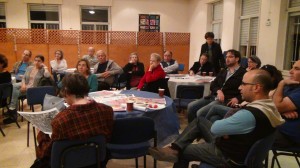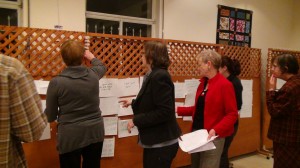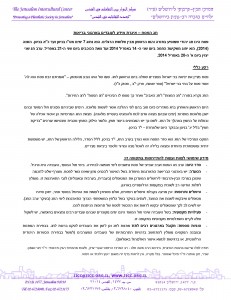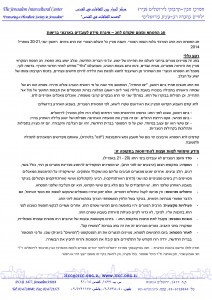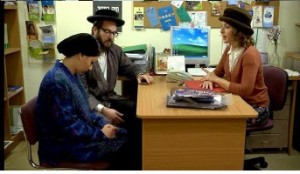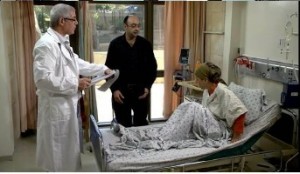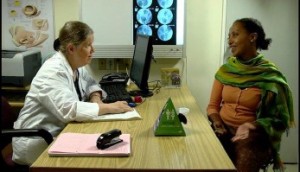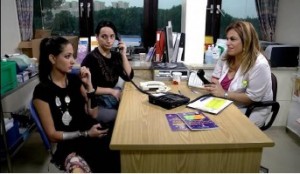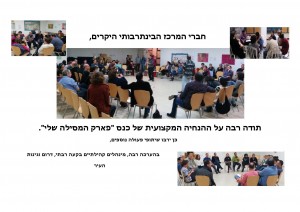First Time in Jerusalem – Participatory Urban Planning in Talpiot/ Arnona
We began working with the Greater Baka’a Community Council, and particularly the area of Talpiot / Arnona, as part of our Deliberative Democracy Program that is supported by the UJA – Federation of New York, some two years ago. We first began with task teams, several groups which worked on specific issues. Response to this renewed community activity was so enthusiastic it inspired residents to band together with a range of local organizations to produce a 90th birthday celebration for Arnona last year.
This year we are entering into a new stage of community development in Talpiot / Arnona. It goes far beyond the very welcome social initiatives to build social solidarity that we sparked last year, and it reaches into the realm of real tachlis, practical planning that will show real results on-the-ground. The Talpiot / Arnona area was slated to receive a new master plan, and the area was chosen to be a citywide pilot of including residents in building a community vision, and contributing in a tangible way to how their neighborhood is going to look in the future. This is the first time where residents’ visions will turn into planning principles, which will then be translated to a master plan, which will provide guidelines for how the neighborhood will look and operate for the next 20 years!
Our first meeting was held on March 26, 2014. It included some 40 residents, community professionals and municipal officials. It was mostly a brainstorming session, one in which all wishes and needs were put on paper, to be revised and refined as the process continues. Vision statements ranged from a desire for cooperation and collaboration among all groups in the neighborhood – religious, secular, etc. – to grow social-cultural programming to increase a feeling of community solidarity in the neighborhood; to a desire for community public buildings to hold activities; to efficient responses to transportation; to making the neighborhood a green neighborhood; to preserving the quiet nature of the neighborhood to improving the safety of the neighborhood, and more. All of these statements will guide the professional city planners when they plan out the future infrastructure for the neighborhood.

